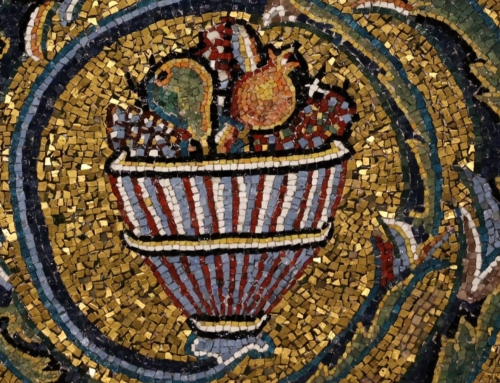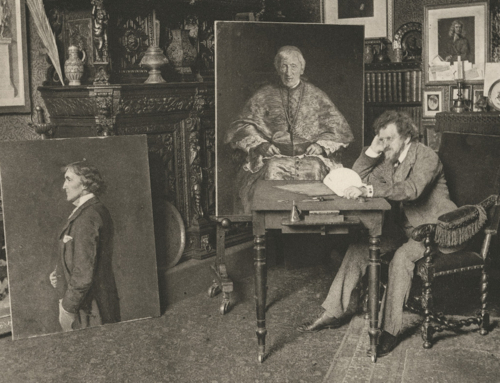As a kid, I loved looking up the meanings of names, especially of my family and friends. Take Sandra for instance, which is a shortened form of Alexandria, coming from the feminine form of the Greek name Alexander, meaning “defender of man.” Or the name Kyle, which comes from the Greek kalos, meaning beautiful or good. In each of these cases, we find an example of humans being named after high aspirations: defender of man, beauty, etc. And the fact that we use such names gives evidence to our yearning for the good, the true, and the beautiful.
Knowing this, the Lord speaks to us through the names of people in salvation history. Most notable are the names the Lord himself bestowed: Abraham (father of many nations), Sarah (lady, princess), Israel (strives with God), and Isaac (he will laugh—because his mother laughed at the prospect of bearing a child in her old age). Then of course, there is Simon’s new name, Peter (Rock), bestowed on him by Jesus, not to mention the announcement of the names of John (the LORD is gracious) and Jesus (the LORD is salvation) by the angel Gabriel. Furthermore, beyond people directly named by God, we have others whose names God uses to reveal something about himself: for instance, Zechariah (the LORD remembers), Jonathan (the LORD has given), Elijah (my God is the LORD), and Elisha (my God is salvation). One could go on about the theological significance of names and naming in the Bible, but three names in particular deserve our attention on their feast day: the archangels Saints Michael, Gabriel, and Raphael.
First, there is St. Michael, whose name means “Who is like God?” This angel appears first in the Old Testament, in the Book of the Prophet Daniel. The passages there show St. Michael to be a faithful spirit through whom God protects his chosen ones. In the New Testament, in the book of Revelation, we find “Michael and his angels fighting against the dragon” (Rev. 12:7). St. Michael, in his mission, declares the victory and power of God by his interrogation: Who is like God? The answer is clear: no one is like God but the LORD. St. Michael teaches us the lesson of humility and faith: to believe in no God other than the LORD.
Second, we have St. Raphael. St. Gregory translates his name as “God’s remedy,” but you could also put it in a verbal form: “God heals.” St. Raphael was sent from heaven “to scale away the white films of Tobit’s eyes; to give Sarah the daughter of Raguel in marriage to Tobias the son of Tobit, and to bind Asmodeus the evil demon” (Tobit 3:17). The mission of Raphael is one of hope and patience for God’s people, for God does not abandon us in our trials but answers our prayers for help.
Lastly, there is St. Gabriel, the angel sent to the prophet Daniel as well as to Zechariah and the Blessed Virgin Mary. Gabriel means “God is my hero” (literally “strong man”). All of Gabriel’s messages teach what his name declares: God is my hero. For Daniel, he interprets a vision that shows forth the coming of the Christ. Then Gabriel announces the birth of Jesus, the culmination of the vision of Daniel. The name of Gabriel reminds us of God’s saving, heroic love for us: a love that teaches us to love him in return.
✠
Image: Fr. Lawrence Lew, O.P., Annunciation (used with permission)







